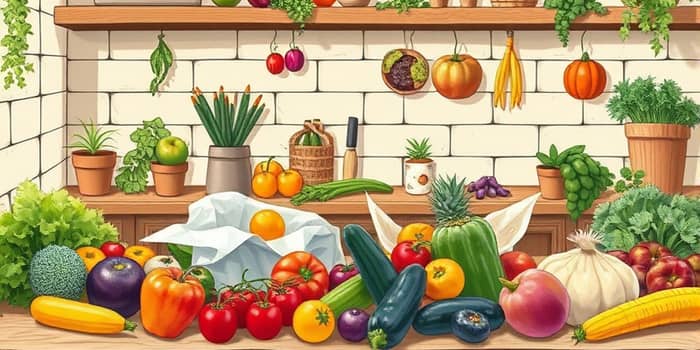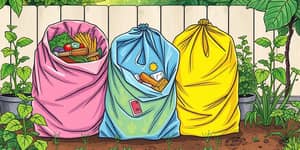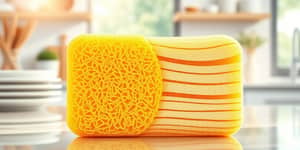We’ve all reached for a roll of cling film to seal leftovers or wrap a snack. But that moment of convenience casts a long environmental shadow. Imagine replacing every plastic wrap roll in your home with a sustainable option that not only preserves food but also nurtures the planet. It’s time to embrace plant-based alternatives and transform our kitchens into hubs of eco-conscious living.
Why cling film is problematic
Cling film, also known as plastic wrap, is petroleum-based and non-renewable. Manufactured from fossil fuels, it demands vast energy to produce and contributes to greenhouse gas emissions. Worse yet, most plastic wrap ends up in landfills or oceans, breaking into microplastics that endanger wildlife and harm ecosystems.
The chemicals in plastic wrap can leach into food, raising health concerns over time. Single-use plastic’s fleeting convenience contrasts sharply with its multi-century persistence in the environment. Every sheet you discard today remains a potential pollutant for generations.
Plant-based alternatives: a greener path
Fortunately, innovative companies and caring consumers have fueled a shift toward renewable, biodegradable food wraps. From beeswax-coated cloths to purely plant-derived films, these options not only seal in freshness but also ensure a guilt-free end-of-life: compost.
- Beeswax wraps made with organic cotton, beeswax, tree resin, and plant oils
- Vegan food wraps using soy or other plant-based waxes
- Reusable sandwich bags coated in plant-derived wax
- Home compostable wraps crafted from starches and plants
- Fabric or cotton bowl covers that are washable and long-lasting
- Silicone lids and bags as durable plastic-free options
Beeswax wraps: nature’s food saver
Beeswax wraps are the frontrunner among plant-based wraps, combining natural antibacterial and antifungal properties with charming patterns. Crafted from organic cotton infused with beeswax, tree resin, and coconut or jojoba oil, they mold snugly around bowls, sandwiches, cheese, or produce. The gentle warmth of your hands activates the wax, creating a tight seal that keeps food fresh for days.
With proper care—washing in cool water and air drying—these wraps last months or even years. When they finally wear out, you can refresh them by brushing on melted beeswax and reheating. At their end-of-life, they’re fully compostable, returning nutrients to soil rather than clogging landfills.
Vegan wax wraps and other plant-based options
For those avoiding animal products, vegan wraps substitute beeswax with plant-based waxes like soy or candelilla. Performance remains top-tier: they cling, protect, and breathe much like their beeswax counterparts. Cork-coated options and starch-based films offer additional plastic-free choices, especially suitable for short-term or freezer storage.
Home compostable films made entirely from corn, potato, or cassava starches break down within months under typical compost conditions. Wrapped items can go straight into your compost bin, ensuring zero-waste disposal and a closed-loop lifecycle.
Cost and environmental impact comparison
Although a high-quality beeswax wrap set may cost around $40, it can replace hundreds of dollars’ worth of single-use plastic wrap over its lifespan. Compostable film rolls are comparable in price to conventional wraps yet avoid the hidden ecological tax of plastic pollution.
Tips for incorporating plant-based wraps
Transitioning to plant-based wraps is easier than you think. Start by replacing plastic wrap in one food category—such as sandwiches—then gradually phase out all single-use films. Keep your wraps in a cool, dry drawer to maintain pliability and longevity.
- Wash wraps gently with mild soap and cold water; avoid hot water which can melt wax.
- Air dry flat or hang; do not machine wash or tumble dry.
- Store wraps in a breathable container to prevent mold growth.
- Refresh faded wraps with a melt-and-spread beeswax revival method.
- Compost worn-out wraps along with yard waste or food scraps.
Beyond wraps: other eco-friendly storage solutions
While wraps shine for flexible sealing, a truly sustainable kitchen embraces multiple strategies. Glass mason jars, snap-top stainless containers, bamboo lids, banana leaves for traditional wrapping, and silicone lids all play a role in eliminating single-use plastics. By mixing and matching, you can tailor storage solutions to every meal and pantry item.
Collectively, these tools foster a circular economy based on renewable resources, reducing reliance on oil and cutting down waste. Each jar or cloth cover you reuse is a small victory for the planet and a reminder of the power of mindful choices.
Embracing a sustainable kitchen mindset
Choosing plant-based wraps over cling film is more than a swap—it’s a statement of values. It declares that you care about the air we breathe, the water we share, and the wildlife we protect. Small daily habits ripple into global change when millions of homes adopt zero-waste practices.
Imagine a future where landfills overflow with compost instead of plastic, where our grandchildren enjoy cleaner oceans and healthier ecosystems. By ditching cling film today and embracing plant-based alternatives, you become an active participant in that hopeful vision. Start wrapping, saving, and composting—your kitchen can lead the way to a greener world.
References
- https://superbee.me/substitute-plastic-wrap/
- https://theearthlingco.com/blogs/news/7-plastic-wrap-alternatives
- https://greenpaperproducts.com/products/compostable-cling-wrap-clear-made-by-ecosafe
- https://www.thegoodlifewithamyfrench.com/post/12-alternatives-to-cling-wrap
- https://www.kempii.co.uk/blogs/kitchen/6-cling-film-alternatives
- https://changestarted.com/plant-based-packaging-offering-a-sustainable-alternative/
- https://www.mynewroots.org/2013/02/the-life-changing-loaf-of-bread/
- https://thegreenhubonline.com/plastic-free-alternatives-to-cling-wrap/










